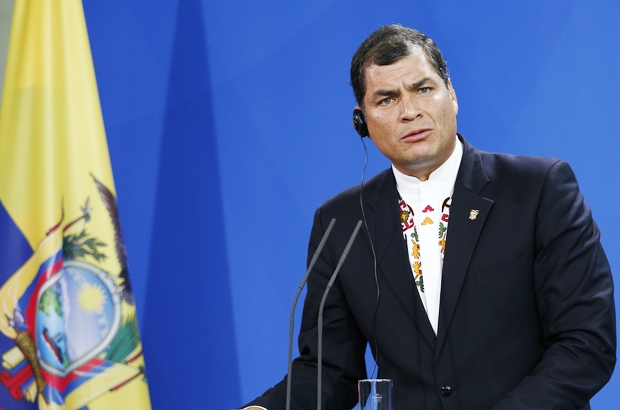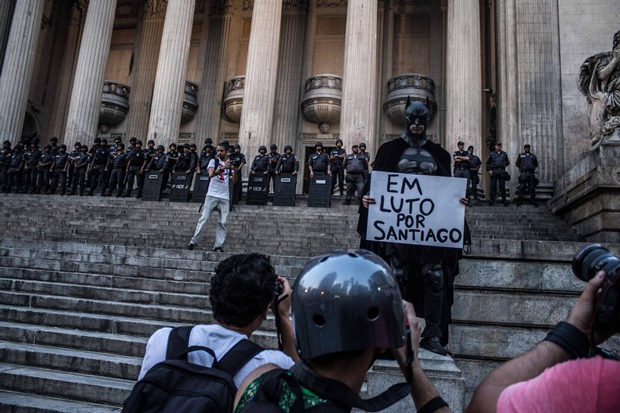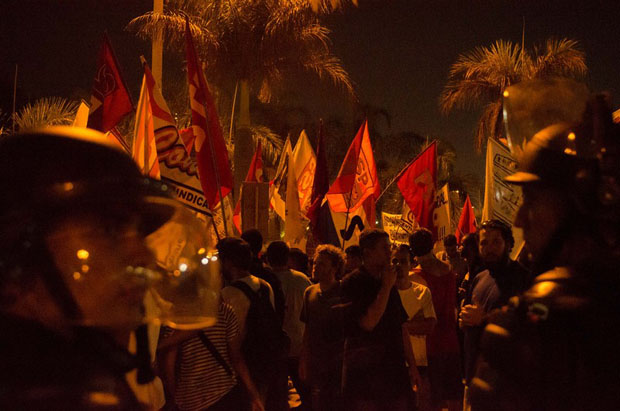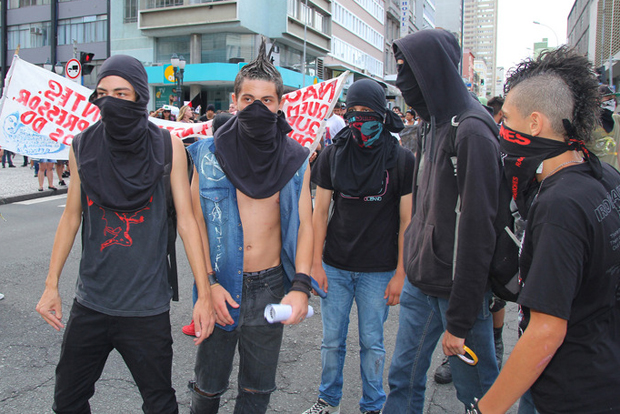The programme for policing this summer’s tournament could have serious consequences for civil liberties, Simone Marques reports


The programme for policing this summer’s tournament could have serious consequences for civil liberties, Simone Marques reports

President Rafael Correa’s recent attack on El Universo newspaper for printing a satirical cartoon, marks a dangerous precedent for Ecuador’s media, writes Jack Gilbert

Dina Meza is an investigative journalist working for the Committee of Relatives of the Detainees and Disappeared in Honduras, an incredibly difficult environment for press freedom.
Greenwald and Poitras uncovered the biggest international story of 2013, using leaks from the USA’s National Security Agency to illuminate the breadth of online surveillance carried out by governments.
London, 28 February 2014 Mr. Alvaro Sanchez, Charge dAffaires, Embassy of the Bolivarian Republic of Venezuela in the United Kindgom of Great Britain and Northern Ireland, Index on Censorship, an international organisation that promotes and...

The death of Santiago Andrade on 10 February, a cameraman for Brazil’s Bandeirantes Network, from injuries suffered while filming a Rio de Janeiro transport price protest has shocked the country, writes Simone Marques

Suggested laws would ban “crimes against sporting and cultural events” among other things. Simone Marques reports

Right at the heart of Brazil’s 2013 mass protests was a feeling of alienation and exclusion from the decision making process for the preparations of the 2014 World Cup. Jack Gilbert reports

On the heels of 2013’s mass protests, Brazil’s state and local governments have introduced restrictions on the use of masks during protests. Simone Marques reports

San Fransisco based Reddit.com made headlines when it allegedly banned climate change deniers from posting on the site. But what’s the truth behind the uproar? Alastair Sloan reports